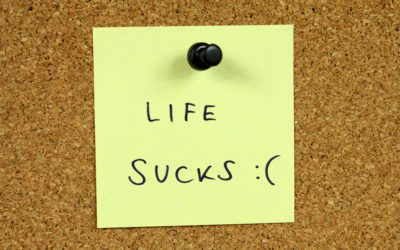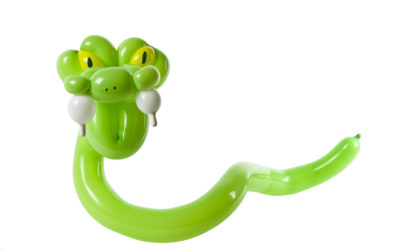What are You Really Afraid Of?
In my TEDx talk “Why Aren’t We Awesomer?”, I shared the story of my appearance on a short-lived UK TV show called “Put it to the Test”. My job was to take three people with spider phobias and put Dr. Richard Bandler’s “Fast Phobia Cure” to the test. Each of the volunteers was hooked up to EEG and EKG machines to show the physical effects of fear on their bodies, and two doctors were there to monitor the results and ensure the results were both accurate and above board…
How to Have More Free Time (no matter how busy you think you are)
Years ago I had a client who’s relative lack of success was a mystery to me. He was smart, good with people, and had all the relevant education and qualifications in his chosen field of study to set himself up for a long career. But somehow no matter how many times we spoke, he made about as much progress as a runner on a treadmill, clocking up the hours without actually getting anywhere.
How to Make Sure Your Life Doesn’t Suck
The other day, someone asked me what I thought the essential purpose of my work was. I’ve not thought about that question for awhile, so I took a bit of time to reflect on it before answering.
My first few thoughts sounded very spiritually impressive:
“To unleash the human potential”
“To wake people up to their divine nature”
“To raise the consciousness of the planet”
Why Does Life Seem So Hard?
For a period of about five years, I had the privilege of teaching alongside Dr. Richard Bandler, the co-developer of Neuro-Linguistic Programming (NLP) and a true original in his approach to helping people change. His willingness to experiment and learn, always with the client’s best interests at heart, made him a kind of hero of mine, and while his methods were at times extreme, his results usually spoke for themselves…
Is Your Money Smiling?
When I was at university, my friends and I developed a somewhat unique way of getting the most out of our philosophical reading. Before we would dive into books like Freud’s Civilization and Its Discontents or Niebuhr’s Radical Monotheism and Western Culture, we would make up what we thought the book would be about and discuss the topic from our own point of view.
What a Misunderstanding about Satan taught me about the Potential of Coaching to Change the World
My early client work was fairly therapeutic in nature – people would come to me with panic attacks or phobias and I would help them change their scary thinking until that fear was no longer a factor in their lives. After a few years of doing that kind of work, I realized that while my clients felt better about feeling better, it rarely changed their lives…
On Deadlines, Pressure, Performance, and Productivity
I have written over a thousand blogs and written and/or contributed to over a dozen bestselling books over the past 20 years. And until a few years ago, there were two things I could absolutely guarantee would be part of my process.
First, I knew I would make my deadlines.
What If We Really Did Have ‘All the Resources We Ever Needed’?
What If We Already Know?
If you’ve ever worked with a coach, or been around personal growth of any sort, even had a mentor, or a loving teacher, then you might have come across the expression that
The client (student) always has the answer they need.
I gotta admit that used to really annoy me when I was on the other end of it.
On Being Inner-Directed
When I was an actor (several lifetimes ago), I realized fairly early on that I was really good at taking direction and pretty hit or miss when it came to coming up with ideas on my own. If a director told me to play a scene as though I secretly fancied the person I was confronting, or I had just been told I had a life-threatening illness, or as though I was scared out of my wits and trying really hard not to let it show, I would feel inspired and things would come through me that made me feel like Marlon Brando, James Dean, and Robert DeNiro rolled into one.
The Difference that Makes the Difference, part three
In part one of this blog series, I highlighted how caring about people and a job well done as being at the heart of excellence and effectiveness in business and in life. Then in part two, I spoke to the feeling of care and caring as being the natural response to recognizing our shared humanity and engaging fully with our lives instead of our thinking.
The Difference that Makes the Difference, part two
In part one of this blog, I shared what I’ve come to see as the critical differentiator between long-term sustainable success and the people and businesses who burn bright for a season or two and then lose heart, lose hope, and move on to the next thing, hoping it will be “the one”.
In order to thrive over time at whatever we do, we need to genuinely care – about the people we are with, the task at hand, the overarching mission or purpose , and our own well-being.
The Difference that Makes the Difference, part one
One of the questions I am eternally engaged with in my work is the search for “the special sauce” – the difference that makes the difference between the good and the great and between the one-hit wonder and the person or company who achieves long-term sustainable success. There are any number of books on the market that attempt to reverse-engineer the answer to this question by studying what high-achieving individuals and companies do differently and offering up a behavioral menu of options, ranging from Steven R. Covey’s The 7 Habits of Highly Effective People to the five keys to corporate turnaround outlined in Jim Collins business classic Good to Great.
The Creative Problem
People come to me all the time to talk about what they want to create and specifically, what they see as the barriers to creating. They complain about their personality quirks; that they are procrastinators or don’t have follow through. They lack discipline or confidence. My reply to them is always the same, “That’s simply not true. Your only problem when it comes to creating in life is you’re not actually in the creative problem that you want to solve.”
A Different Way of Thinking About Work/Life Balance
A few weeks back I attended a wonderful weekend program with three of my favorite mentors in the inside-out understanding. George Pransky, who I have written about often in these missives, was sharing how a recent health challenge had, “through no fault of his own”, caused him to experience a depth and scope of being that was so beautiful and all-encompassing it made him question all the years of thinking and doing he had participated in up to this point in his life.
Too Much to Hope For
Over the years, I’ve had a long and varied history with the word “hope”. For a long time, I thought of it as a kind of a toothless variant of positive thinking, keeping people mindlessly justifying all kinds of horrible circumstances in the vainglorious hope that things would magically improve all by themselves.
















